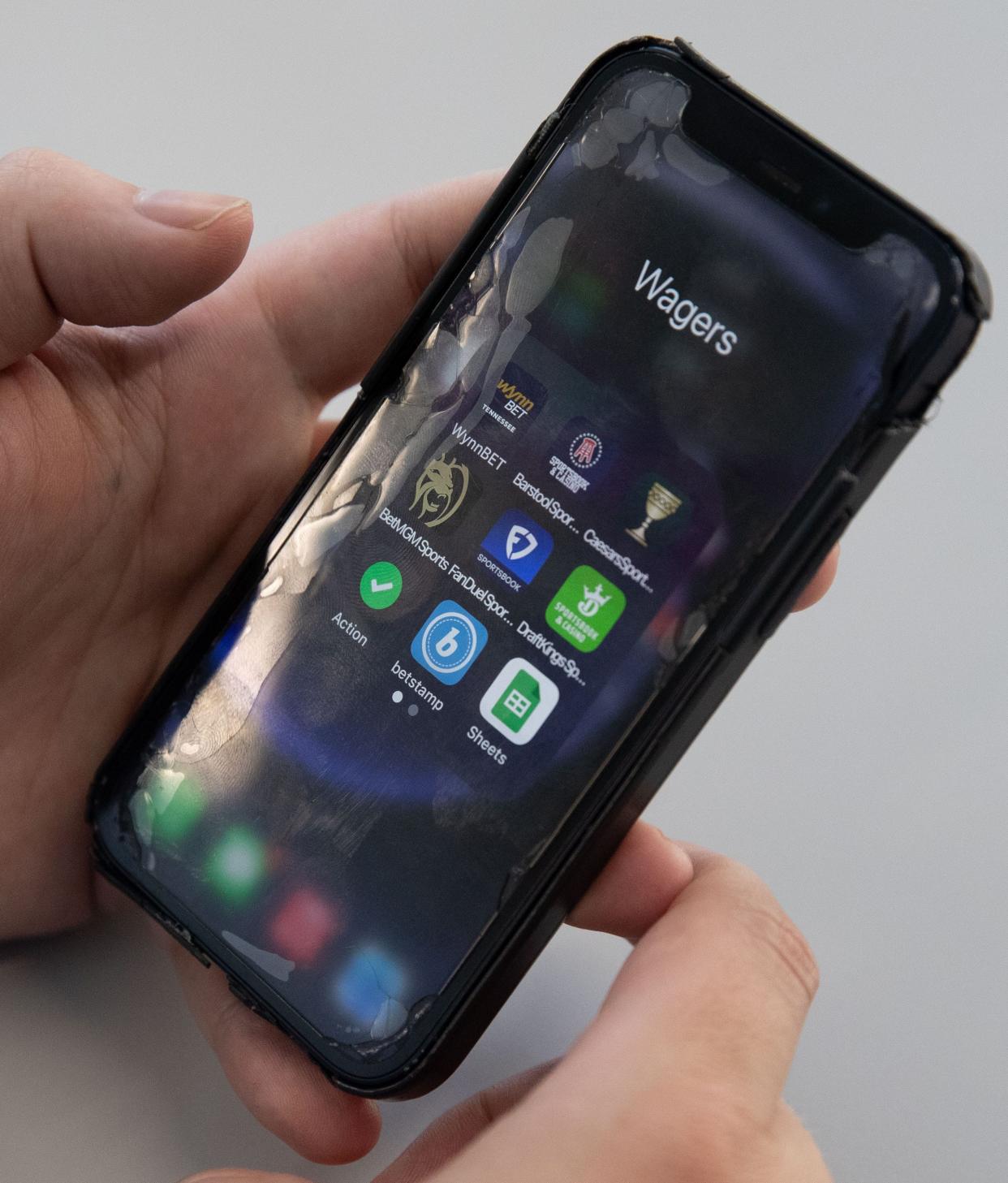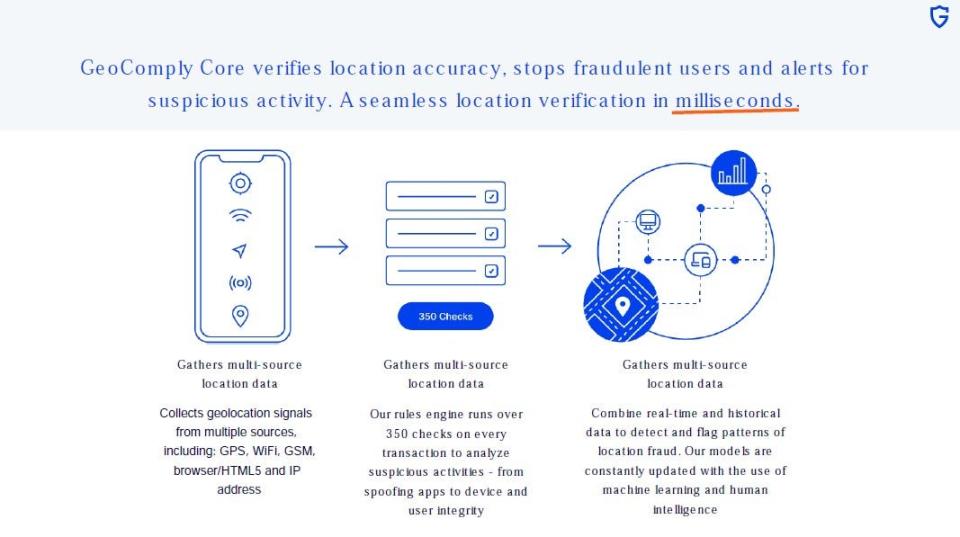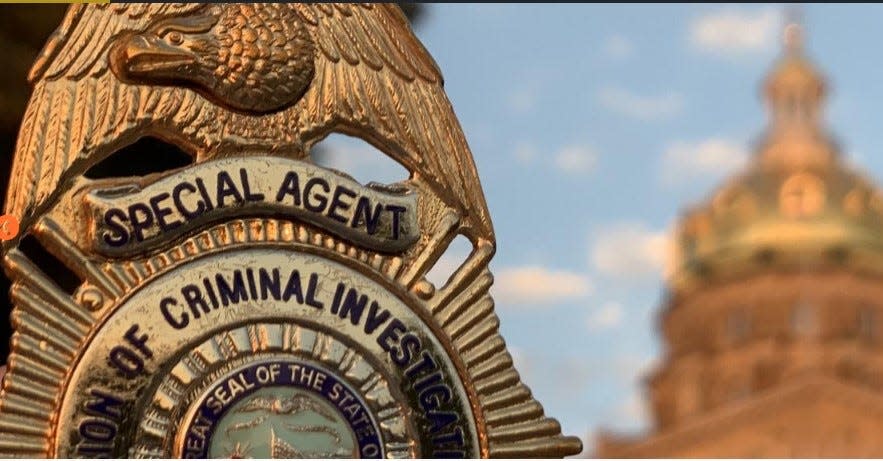Iowa agents hoped to change betting laws with college sports gambling probe, emails show

State investigators used a college athletes betting probe to advance their ambitions, attorneys for the players have alleged.
In a statement, lawyers Matt Boles and Van Plumb released excerpts from a series of internal Iowa Division of Criminal Investigation emails that revealed agents' hopes that politicians would push for stricter sports betting laws in the wake of the investigation. However, another email excerpt showed that some agents worried that the investigation into betting among University of Iowa and Iowa State University athletes was illegal.
"The investigation seems to have been started to justify the formation of a new unit within the DCI," Boles and Plumb said in the statement, alluding to the small sports betting team that division officials formed in 2021.
The lawyers' statement, released Thursday, follows an April 26 lawsuit they filed against the state, the DCI, the Iowa Department of Public Safety and several law enforcement officials. Representing 26 current and former college athletes, the lawyers allege that investigators violated their clients' civil rights by using software to check whether people used betting apps inside university athletic buildings.
A DCI spokesperson did not immediately return an email seeking comment. Nor did a spokesperson for Iowa Attorney General Brenna Bird, whose office is defending the state officials in the lawsuit.
Iowa DCI agents believed case could lead to new laws regulating sports betting
DCI Special Agent Brian Sanger began the investigation in December 2022, soon after he and other members of the sports wagering unit received training on how to track sport betting fraud with software from GeoComply. The Canadian company contracts with online sports books to monitor the locations of registered bettors.
More: 'Fox watching the henhouse': Is Iowa's sports betting law too weak to prevent abuse?
According to internal emails previously revealed by the Register, a GeoComply official told Sanger how state regulators should write rules that would allow the company to provide location data to law enforcement without a warrant. After the Iowa Racing and Gaming Commission followed those instructions and approved new regulations, GeoComply officials trained DCI agents to use the company's software, known as Kibana.
The software shows "pins" on a map, revealing where online bettors are placing wagers. The map is anonymized, meaning the software does not show the name of the user for each pin.

After a GeoComply employee traveled to Des Moines in late November 2022 to show agents how to use the software, Sanger found betting activity inside Iowa and Iowa State athletic buildings. The DCI subpoenaed sports books for the account information behind the pins inside those buildings, revealing that some Iowa and Iowa State athletes under the legal betting age of 21 placed wagers. Some also used sports book accounts registered to parents or friends.
In a Jan. 19, 2023, email to Troy Nelson, the DCI's special agent in charge of the sports wagering unit, Sanger wrote that the investigation could be a "springboard" to a new state policy. He said the gaming commission, which regulates sports books, could require betting companies to share information about every account registered in Iowa.
Sanger said the gaming commission could require the sports books to upload an Excel spreadsheet every week that listed account numbers, user names, addresses, emails and phone numbers for every account active in Iowa.
"We can ensure no college coaches, athletes, officials, athletic trainers, individuals close/inside a college sports program, along with statewide barred patrons don’t have Iowa sports wagering accounts," Sanger wrote.
He added: "It would be nice to include more accounts data but I believe this limited list would have a better shot of getting approved."
DCI special agent: 'If they get suspended or get a scholarship taken away, so be it'
Two weeks later, on Feb. 2, 2023, DCI Special Agent Christopher Adkins told Sanger and Nelson that he was also mulling the broader potential for the sports betting investigation. He believed the case could show higher-ranking law enforcement officials, as well as politicians, why the DCI's sports betting team mattered.
“This is one of those things that would bring attention to our unit, not only in the public’s eyes, but also as far as the commissioner and even possibly the legislatures," Adkins wrote.
He added that state laws do not criminalize team personnel from betting on their own games. He suggested the investigation could motivate a bill to do so in the Legislature.
More: Iowa lawmakers halt attempt to tighten sports betting rules after college gambling scandal
"As far as the coaches, players, and managers are concerned, we don’t necessarily have a crime on the books in Iowa," he wrote, "but I think it would be a good idea to report them to the University, the Big Ten, and the NCAA. If they get suspended or get a scholarship taken away, so be it."
He added: “If we pursue this and it hits the media, which it would, and people start asking why nothing criminal was done ― we can use that platform to hopefully push legislators for code changes moving forward."
The Legislature has not criminalized sports betting among team personnel in the wake of the investigation. But the probe led to 25 criminal charges in Story and Johnson counties.
Nineteen defendants pleaded guilty to underage gambling, paying $645 fines. The Story County Attorney's Office dismissed charges against six defendants, five of them because GeoComply cut off the DCI's access to the company's software amid the betting scandal.
Athletes' attorneys: DCI agents were worried about investigation's legality
On March 2, 2023, DCI Special Agent Christ Swigart suggested in an email to Nelson that investigators needed a warrant to look up betting activity on GeoComply's software ― something Sanger had not done a couple of months earlier.
Recapping a phone conversation with GeoComply, Swigart wrote that other states required subpoenas or search warrants for "locations geofenced."
Previously: Iowa lawmakers fret about privacy rights after allegations against sports betting probe
"It’s going to be a controversial issue for us to be able to articulate what leads an investigator to search specific locations for accounts based on the absence of a complaint or lead. Fourth amendment issues are going to be challenged when we are arbitrarily picking locations we want to randomly locate account information from," he said, referring to the constitutional amendment that protects citizens from illegal searches by the government.
Swigart also asked Nelson whether investigators needed a policy "so we can head off any constitutional issues that could perpetuate case law within our unit."
"Yeah I'll think through that," Nelson responded.
Three weeks later, DCI Assistant Director Dave Jobes emailed Iowa Department of Public Safety attorney Catherine Lucas in preparation for a meeting between the two to discuss GeoComply. In the email ― which Nelson helped compose ― Jobes explained what GeoComply was and how DCI agents used the company's software.

"Some agents are expressing concern related to the initial use of the geolocation data and the potential need to identify the source of the data in subsequent court proceedings," Jobes wrote to Lucas on March 24, 2023.
The email chain, which the players' attorneys and the Register received through records requests, does not show what Lucas concluded about the use of GeoComply.
However, in a statement in January of this year, DPS Commissioner Stephan Bayens said, "Prior to using the tools provided, the Department of Public Safety conferred with legal counsel to ensure lawful access to and use of the technology."
Internal emails previously revealed by the Register also show that Iowa Assistant Attorney General Jeffrey Peterzalek sat in on an August 2022 conference call among gaming commission and GeoComply employees to discuss the DCI's use of the company's software.
Law professor: Warrant not required in Iowa sports betting probe
Orin Kerr, a University of California, Berkeley, law professor and Fourth Amendment expert, previously told the Register that the DCI's actions did not appear to constitute an illegal search, even though Sanger did not apply for a search warrant.
Bettors agreed to share their locations with sports books, which agreed to share the data with GeoComply. Kerr said the Fourth Amendment prevents the government from taking evidence by force.
In Wednesday's statement, the players' attorneys also point to a September 2022 email from GeoComply General Counsel Maninder Malli to DCI Special Agent Heather Duenow. In the exchange, which occurred three months before Sanger launched his investigation, Malli explained the company's legal interpretation about the use of location data.
More: Iowa investigators in student sports betting probe defend investigation tactics
"From a privacy perspective, the player/end user is the owner of the geolocation data when it's associated with their accounts and devices," he wrote.
But in a second part of the email ― which the players' attorneys did not include in their statement ― Malli added that the law changes when GeoComply provides anonymized information about the locations of various bets, as it would do with the DCI.
“When the data is anonymized or depersonalized by GeoComply," he wrote, "... GeoComply would own this type of data.”
Tyler Jett is an investigative reporter for the Des Moines Register. Reach him at tjett@registermedia.com, 515-284-8215, or on X at @LetsJett. He also accepts encrypted messages at tjett@proton.me.
This article originally appeared on Des Moines Register: Iowa agents hoped to change laws with college sports gambling cases

